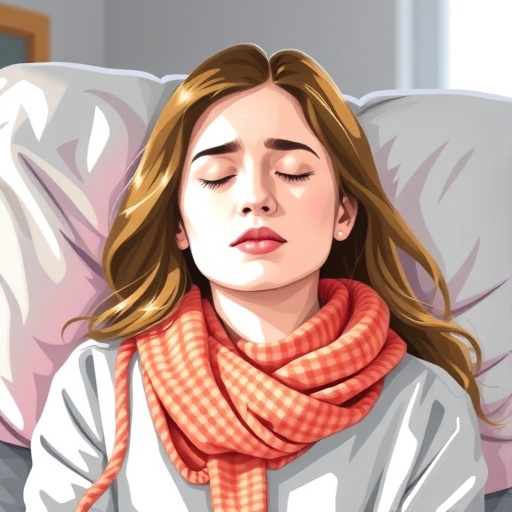In the evolving landscape of mental health, understanding the nuanced relationship between personal recovery and clinical recovery is crucial for developing effective treatment strategies. A groundbreaking prospective study published in BMC Psychiatry sheds new light on how stress management, illness management, and goal setting influence this complex dynamic among individuals experiencing psychosis. Conducted across multiple clinical settings in Norway, the research offers a meticulous examination that could reshape therapeutic approaches aimed at mental health recovery.
The investigation stems from a vital question: what factors modulate the interplay between clinical improvement and an individual’s subjective sense of personal recovery? While clinical recovery—marked by symptom reduction and functional restoration—has traditionally been the focus of psychiatric care, personal recovery emphasizes living a meaningful life despite ongoing symptoms. This study bridges these two dimensions by exploring how receiving help in managing stress and illness, alongside assistance with goal setting, affects personal recovery in people facing psychosis.
Using data collected at two time points—baseline and after eighteen months—the researchers followed over 300 service users and their clinicians from 32 clinical sites scattered throughout Norway. This longitudinal design enabled a dynamic assessment of recovery trajectories rather than a static snapshot. Participants’ personal recovery was quantified through the Questionnaire about the Process of Recovery, a standardized and validated instrument specifically designed to capture the multi-faceted nature of recovery experiences.
Key to this analysis was the examination of two variables that were hypothesized to modify the association between clinical symptoms and personal recovery. First, the extent to which service users reported receiving support in managing stress and illness was considered. Stress is a well-documented exacerbating factor in psychosis, and managing it effectively can potentially attenuate symptom severity and improve overall well-being. Second, assistance with setting and achieving personal goals was investigated, reflecting an active, future-oriented dimension of recovery where individuals regain autonomy and direction.
Findings from the study revealed a nuanced pattern: individuals with higher baseline symptom severity who reported receiving help with goal setting exhibited more pronounced personal recovery over the follow-up period compared to those lacking such assistance. This suggests that targeted support in goal-oriented behaviors not only enables symptom management but also nurtures hope, motivation, and self-efficacy—key components of personal recovery.
Moreover, among service users characterized by lower baseline functioning, those who stated that they received help managing stress and illness or with goal setting demonstrated higher levels of personal recovery than their counterparts without similar support. This points to the critical role of tailored interventions that address both symptom control and life management skills, especially in individuals struggling with functional disability.
The research employed linear mixed models to navigate the statistical intricacies of repeated measures and the complex interplay of variables. This robust method allowed for controlling individual differences and provided a reliable estimate of the moderators’ effects on the link between clinical and personal recovery. Such methodological rigor enhances confidence in the findings and their applicability in clinical settings.
Importantly, the study’s results advocate for an integrative approach in mental health treatment frameworks—one that consciously incorporates stress management strategies and goal-setting support as pillars alongside traditional symptom-focused interventions. This triangulated approach acknowledges the diversity in recovery pathways and tailors support to individual needs, potentially elevating the overall efficacy of psychiatric care.
The implications of these findings extend to clinicians and service providers, emphasizing a shift from purely symptom-centric metrics to a more holistic, person-centered paradigm. Empowering service users to engage actively in goal setting and equipping them with tools to handle stress appear not merely as adjuncts but as central components in fostering enduring recovery.
Furthermore, the study underscores the value of sustained measurement over time to capture the evolving nature of recovery. Recovery is neither linear nor uniform; it fluctuates with internal and external conditions. Longitudinal data empower clinicians to perform flexible, adaptive interventions that resonate with the patient’s current state rather than relying solely on one-time assessments.
While the study is geographically confined to Norway, its insights have universal relevance, highlighting common mechanisms underpinning recovery from psychosis across diverse healthcare systems. Future research could expand on these findings by integrating neurological, genetic, and socio-environmental variables to deepen the understanding of recovery pathways.
Ultimately, the research champions a transformation in mental health care, urging the incorporation of personalized stress and illness management programs combined with supportive goal setting. This multidimensional approach promises not only symptom reduction but also the enrichment of life quality and meaningful engagement for those navigating the challenges of psychosis.
By illuminating these critical moderators, this study presents a compelling case for clinicians, policymakers, and mental health advocates to reexamine and redesign recovery-oriented services. The promise is clear: facilitating both the clinical and personal aspects of recovery can unlock greater potential for individuals in their journey toward mental well-being.
Subject of Research: The role of stress management, illness management, and goal setting in influencing the relationship between personal and clinical recovery in service users with psychosis.
Article Title: The roles of stress, illness management, and goal setting on the association between personal and clinical recovery – a prospective study
Article References:
Skar-Fröding, R., Clausen, H., Marciuch, A. et al. The roles of stress, illness management, and goal setting on the association between personal and clinical recovery – a prospective study. BMC Psychiatry 25, 848 (2025). https://doi.org/10.1186/s12888-025-07291-4
Image Credits: AI Generated




